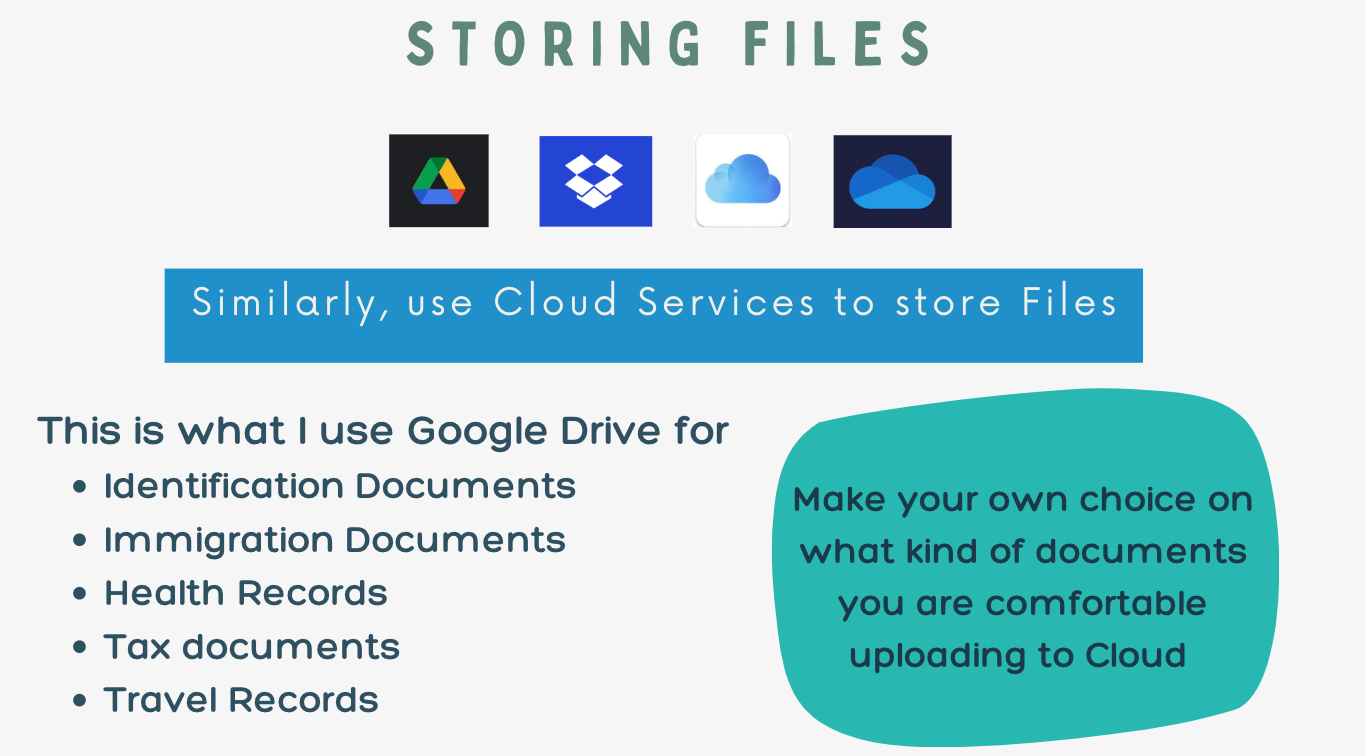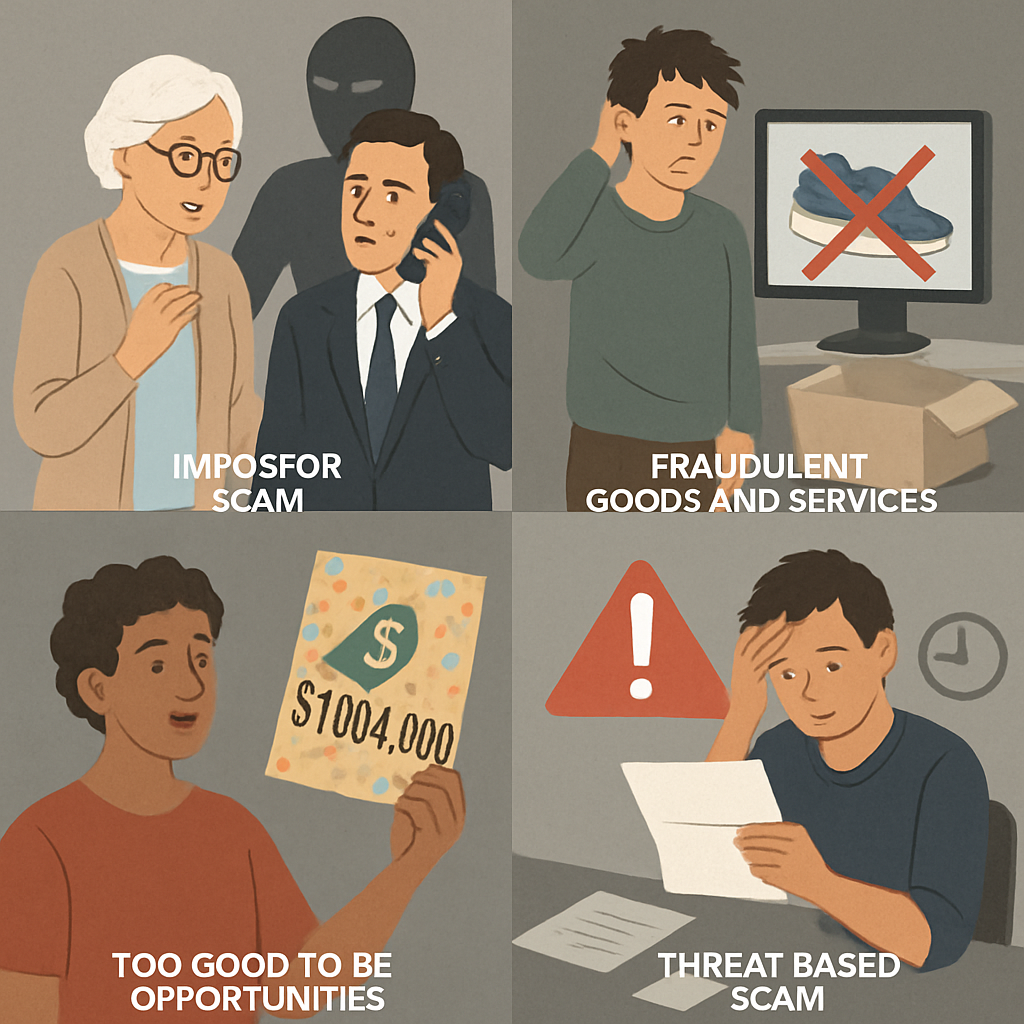Using the Cloud
Cloud is a word that technical people use to describe machines that some company owns. Think about it being like PO Box. Your letters are kept in a Post Office building, but they are secured such that only you have access to them
- Post Office Building = Cloud Data Centers
- Letters = Data
- Locker key = Account Passwords
It's easy to get started and most Cloud Provider have free tier. Unless you have lots and lots of photos, you don't have to pay anything to get your files and photos secured and safe under you Cloud account.
But why should we even use Cloud? Is it safe? Do you risk losing privacy?
The default way of doing things is that we store photos or files locally. When you are clicking a photo in smartphone, it's going to smartphone's internal memory. When you save something on your computer, the file is saved to computer's hard disk or SSD. "Sync" or "Backup" on your Android/Iphone is generally enabled by default or at the time of setup. Ensure these settings are enabled to automatically backup your files and photos.
Like everything else, there are pros and cons of using Cloud. Cloud provides durability that no hard disk or personal computer can provide. Hardware goes bad and when they do it's harder and expensive to recover your data. I can't overemphasize how important it is to store your memories (photos/videos) and your digital documents somewhere that you can rely on. Your data on Cloud is available everywhere you have an internet connection. You will see the same files in your phone, Ipad or computer. If you change your smartphone, you will instantly get Contacts, Photos, Files from your previous phone on to the new one. It's magical and so convenient.
The downside is, if you have a lot of data/photos, you might have to pay between $2 to $10 a month for saving them on Cloud and you need to ensure that no bad actor has access to your password for account.
How to get started? If you have a Gmail account, you can store your photos and files under Google Photos and Google Drive. If you have a hotmail/outlook account, you can use it to store files/photos under One Drive. You need to enable automatic backup from your smartphone to avoid having to upload each photo yourself.
On computer, it's a bit different. You can install OneDrive or Google Drive applications. They create a folder which usually syncs files between the folder and cloud. So if you drop a file into that folder, it's going to be automatically uploaded into cloud. If you use a different device to upload something to this drive, the file should be also visible in the Google Drive/ One Drive folder automatically. That's what syncing is. The latest copy wins. If you delete something from local folder, it will be also deleted from Cloud and vice versa.
But what about security and privacy? If you ensure Security, your Privacy is ensured. If only you know the credentials to your account, nobody else will have access to these files (unless you explicitly give them). Again, it's like your PO Box in Post Office. Ensure your keys are safe, and all your mails will be safe as well. To have stronger security, consider using Multi Factor Authentication which validates a One Time Password each time you login. This means a user (your or the bad actor) not just requires password to get into your account but access to your unlocked phone as well. That's fairly sufficient measure for security.
What am I personally using Cloud for? A lot of things. Apart from Photos, these are the files I manage in their separate folders for myself and my family members:
- Identification Documents (Passport, Driving License)
- Financial Documents (Tax Returns, Bank statements, P&L statements)
- Property Documents (rental agreements)
- Health Documents (clinic visit summaries, blood test results)
- Immigration Documents (Travel records, Visa)
Summarizing, for an average user, there's no reason that Cloud shouldn't be used to back up your files and photos. It's easy to set up and access. Depending on how much data you have, you might have to pay a bit, but that's still more efficient than having to maintain physical devices like external hard disk, thumb drives, SD cards, etc.
Here's a bonus. Here's my presentation in Wallingford Senior Center where I talked about the same things as above.
I hope the joy of learning and sharing always stay with you! Until next time, take good care of yourself!

Rajat Aggarwal
I'm based in Seattle and have spent over a decade in the software industry. Recently, I've discovered my true passion: teaching and maximizing the impact of the resources I have to create meaningful outcomes. When I’m not sharing knowledge, you’ll likely find me diving into random science books from the library, letting my curiosity whisk me away into fascinating new worlds. I’d love to connect—feel free to reach out on Facebook or LinkedIn! Let’s inspire and grow together.



